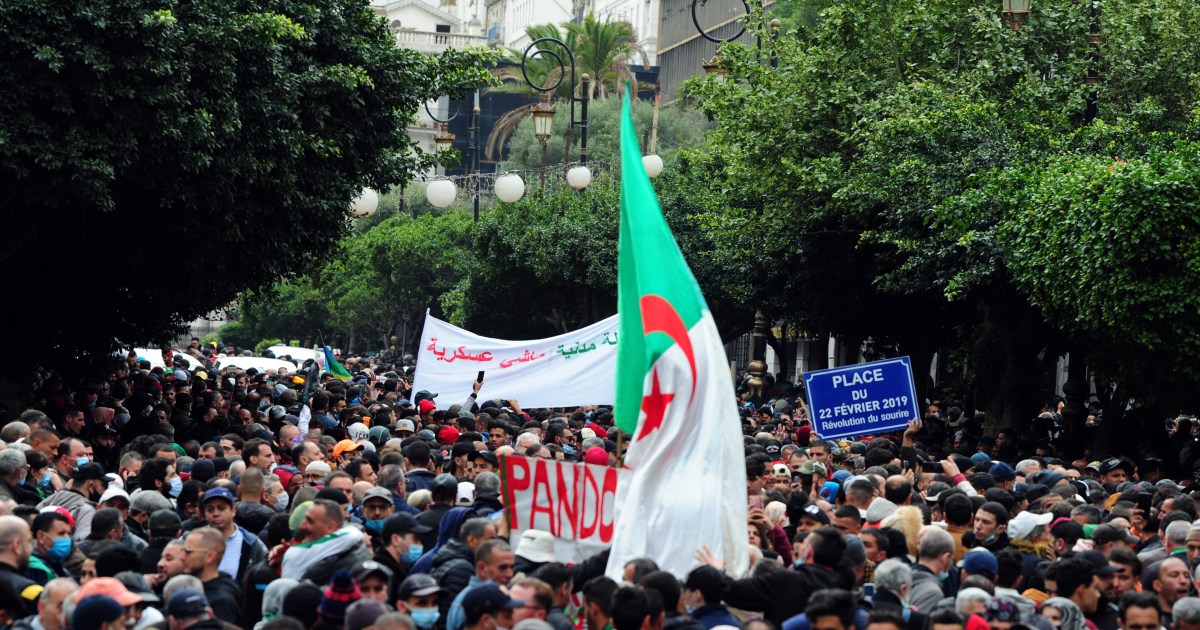Thousands of Algerians demonstrated Monday in the capital and other cities on the second anniversary of the movement, demanding what they described as real change, after days of measures taken by the authorities that included the release of dozens of activists.
After a hiatus of nearly a year due to the outbreak of the Corona virus, the demonstrators calling for a democratic system and the fight against corruption returned to the streets amid heavy security deployment, especially in central Algiers.
In the capital, protesters gathered in front of the Central Post Square, chanting slogans calling for more freedoms and real change in the country.
The demonstrators marched in the center of the capital, waving Algerian flags and chanting slogans they had previously chanted, including "a civilian state, not a military one," "the people want independence" and "we are not here to celebrate, we are here to demand your departure."
By evening, the protesters had peacefully dispersed in the center of the capital, while the students who participated in the demonstration pledged to resume their weekly marches every Tuesday.
Other cities
The protests were not limited to the capital, as other demonstrations took place in Annaba, Oran, Bejaia, Setif, Bouira, Khenchela, Mostaghanem and Constantine, according to photos posted by activists on social media.
According to the National Committee for the Liberation of Detainees and the French Press Agency, security forces have arrested at least 59 people, including 26 individuals in the capital.
About a week before the second anniversary of the February 22 movement, a large demonstration took place in the city of Kharata, in the state of Bejaia (east), which is described as the cradle of the movement.
For his part, Minister of Communication and Government Spokesperson Ammar Belhimer said that the occasion of the second anniversary of the movement was approved by the Algerian President Abdel Majid Tebboune as a national day of brotherhood and cohesion between the people and their army.
The protests returned to the memory of the movement despite the steps taken by the authorities a few days ago, including the amnesty issued by President Abdel-Majid Taboune for dozens of activists who were arrested during previous rallies, his decision to dissolve Parliament in preparation for early legislative elections, as well as a limited cabinet reshuffle for Prime Minister Abdelaziz Jarad's government.

